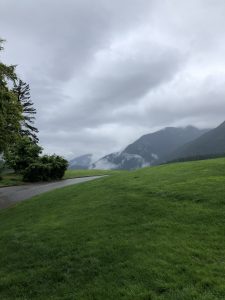Question: Why is the notion that cultures can be distinguished as either “oral culture” or “written culture” (19) is a mistaken understanding as to how culture works, according to Chamberlin and your reading of Courtney MacNeil’s article “Orality.”
Throughout this blog post, the notion of “oral cultures” and “written cultures” being their own separate entities, completely detached from one another will be attempted to be debunked. The writings of J. Edward Chamberlin and “Orality” written by Courtney MacNeil are two avenues of information that offer the reader so much insight into this particular affair. Where a lot of issues arise on this topic is the notion of cultures being defined by their modes of communication. Cultures can clearly be both “Oral” and “Written” as both oral and written mediums are quite apparent in every culture.
J. Edward Chamberlin is a professor in the English Department and Center for Comparative Literature at the University of Toronto. His areas of research include: Modernist and Contemporary poetry, Caribbean literature, Indigenous literatures, Oral and Written traditions, and stories/storytelling. He has comprehensive publications on the oral and written histories of Indigenous peoples and provides very important commentary and criticism on their misrepresentation and mistreatment. Something that Chamberlin unpacks in both his novel and interview, is the act of holding oral culture and written culture on opposing grounds creates an “us” versus them” psychology of ostracizing.
Courtney MacNeil speaks on similar grounds to this statement. In her article “Orality,” she draws on an example proposed by John Miles Foley, something he calls “The Great Divide” between written and oral traditions, and how this “unequal dichotomy” promotes the “notion of orality as a primtive or underdeveloped medium” (MacNeil, 2007.) I can’t help but agree with her. As the world continues on its path of “evolutionary progress,” the value and virtue of oral traditions is buried deep within the suppressed cultures of those we have oppressed.
Now, with this being said, of course in the West we view ourselves as the farthest thing from “underdeveloped” or “primitive,” so there is no shock that students are being taught to regard “oral” cultures and “written” cultures as two separate things. The way it is distributed to the masses is through a filter which promotes “oral” culture to be viewed as one tied to myths and fantasy, stories holding little to no validity or verifiable truth; whereas “written” culture is the only medium where facts and proper statistics are supplied.
Culture is much too complex to be broken into these two dichotomies as MacNeil puts it. There are too many variables to be taken into account. In her paper titled “The Relationship between the Oral and Written mode of communication within the fabric of Western Based Society,” Sharon McLeod helps summarize this point further by saying “…oral narratives continue to be dominated by the written mode of communication which inadvertently serves as justification for the propagation of the dichotomy between the two” (Mcleod, 2006.) I hope that this is more frequently a topic of future discussions as it will help provide a more inclusive and legitimate perspective of “oral’ and “written” cultures.
Works Cited
Chamberlin, Edward. “Interview with J. Edward Chamberlin”. Writer’s Café. Web April 04 2013.
McLeod, S.”THE RELATIONSHIP BETWEEN THE ORAL AND WRITTEN MODE OF COMMUNICATION WITHIN THE FABRIC OF WESTERN BASED SOCIETY” (August, 2006.) http://dtpr.lib.athabascau.ca/action/download.php?filename=mais/sharonmcleodProject.pdf
Courtney MacNeil, “Orality.” The Chicago School of Media Theory. Uchicagoedublogs. 2007. Web. 19 Feb. 2013.http://lucian.uchicago.edu/blogs/mediatheory/keywords/orality/
